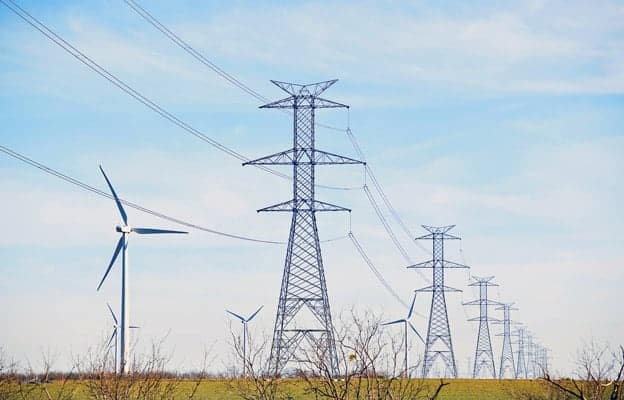Should homeowners pay more for electricity to spare businesses facing growing costs? The Greater Kitchener-Waterloo Chamber of Commerce says yes, supported by a report released last week by the Ontario Chamber.
The study suggests companies will fold and Ontario will lose out to lower-cost jurisdictions when it comes to attracting new business. It emerges as the province faces escalating electricity rates and a government plan to sell off 60 per cent of Hydro One to pay off debt and fund a long list of transit schemes.
Under worsening circumstances – rates are expected to climb another 40 per cent in the short-term – something must be done, the business organization stresses.
“It’s generally reflective of the entire business community. We’re part of the Ontario business community, so I think it’s pretty well reflective of the position of the local businesses here in Waterloo Region,” said Art Sinclair, the local chamber’s VP of public policy and advocacy, of the Ontario Chamber’s report.
Sinclair says the overriding issue is the cost of electricity is too high. And as the report suggests, there’s a possibility of businesses shutting down because of the prohibitive cost of doing business because of hydro rates.
As for if he’s heard of any businesses who’ll have to shut their doors if hydro rates are jacked up, not yet. But with no indication what the new rates would be, it’s hard for anyone to determine what the extra costs will add up to.
“But certainly there’s a concern as there is across the province, generally about the price of electricity. It’s a fixed cost. Sure you can do a lot of things at your organization to cut the amount of electricity that you’re using but for the most part, you pay what you’re billed. The approach to addressing this is to be more energy efficient and a lot of businesses are doing that,” Sinclair said.
The Ontario Chamber’s report states 38 per cent will have to delay or cancel investment in the future because of rising electricity costs. Sinclair says the business community just wants equity, and for everyone to share equally in paying down the $284-billion plus debt Ontario has racked up. The debt retirement charge, 0.7 cents per kilowatt hour of use, will be phased out next January. It was instated to help pay down the debt of the old Ontario Hydro.
“It’s pretty clear what this is being done for is to generate some revenue for the province of Ontario. It’s being done to drive the revenue stream. It’s some quick cash for the provincial treasuries and of course with provincial debt and deficit levels at the levels that they are I think a lot of people can understand why the province is moving in that direction,” Sinclair said.
But the funds they’ll generate from the privatization of Hydro One are just a drop in the can when it comes to the province’s debt. It will bring in one lump sum, rather than nearly $1 billion annually to the province. And selling off a public utility is always a touchy subject.
“A lot of people have always looked at it from a broader perspective. Generally in the Region of Waterloo businesses pay about twice what the residential sector does in terms of property taxes. From that perspective, businesses generally feel they pay their share or in some cases a bit higher than the residential sector, and this has always been an issue in local government or provincial government. For property taxes there’s a separate category for industrial, manufacturers. They pay different than other commercial businesses. There are all these different categories of taxpayers and ratepayers,” Sinclair said.
Ontarians are justified in their concerns. Just look at what happened in Nova Scotia. They privatized their electricity system years ago for $800 million. Now they have the highest electricity prices in Canada. Not to mention, the sale of Hydro One will only bring in an estimated $4 billion in infrastructure funds – less than 15 per cent of the government’s plans for transit investment.
“It’s still very early because it was just a week before the budget it was formally announced there were some major changes. There was the sale of beer and the sale of alcohol changes to the LCBO and changes announced to Hydro One and the plan for privatization. I think that what we’ve heard from the business community is that the concern is during the reorganization, it is major, what’s being proposed is a pretty major restructuring. But I think the concern is if this restructuring goes ahead as planned what will the impact again be on rates?”









